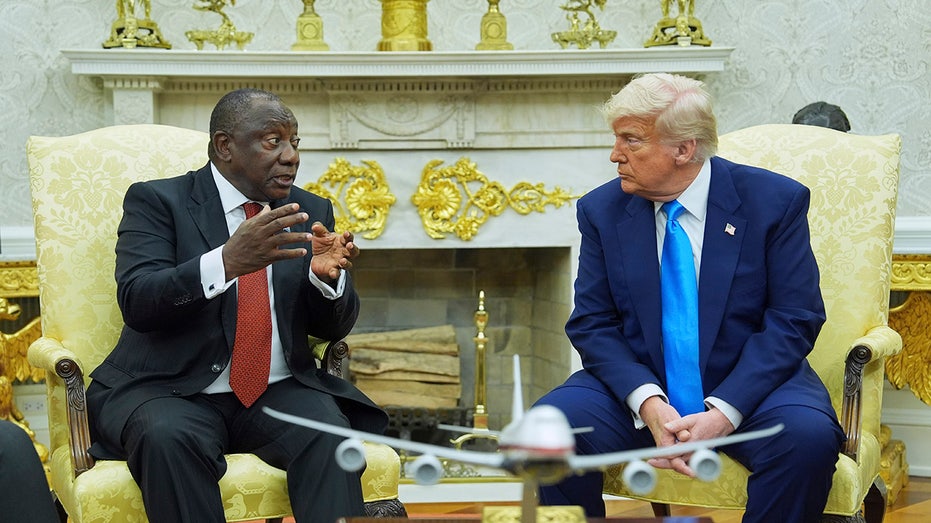South Africa's President Rejects Trump's Call to Arrest 'Kill the Farmer' Chanting Politician
South African President Cyril Ramaphosa defies calls to arrest Julius Malema over anti-farmer chants amid international pressure.

South African President Cyril Ramaphosa has rejected U.S. President Donald Trump’s call for the arrest of opposition politician Julius Malema over Malema’s repeated use of the controversial chant "kill the farmer." Addressing reporters in Johannesburg on Tuesday, Ramaphosa emphasized the country’s independence, stating, "It's not a matter where we need to be instructed by anyone to go and arrest this one. We are a very proud sovereign country that has its own laws, that has its own processes."
The dispute surfaced after President Trump, during a meeting at the White House last week, played a video for Ramaphosa showing Malema leading the chant—an act Trump argued warranted immediate detention. Malema, leader of the Economic Freedom Fighters (EFF), remains defiant, telling supporters at a recent rally, "I will never be intimidated by Donald Trump," before repeating the contentious slogan to loud cheers from the crowd.
The chant, “Shoot to kill. Kill the Boer, the farmer,” refers to Afrikaners—descendants of Dutch settlers—and stems from South Africa’s turbulent history of racial division and liberation struggle. The slogan was officially examined by South Africa’s Constitutional Court in 2022 which concluded that the phrase constitutes an historical “liberation chant and slogan,” and is not intended to incite violence today. Nevertheless, critics argue that Malema, who also sits on the Judicial Services Commission responsible for appointing judges, is using his platform to stoke divisions.
Calls for action are not limited to international voices. On Tuesday, Ian Cameron, chairperson of the Portfolio Committee on Police and a member of the Democratic Alliance (DA)—South Africa’s main opposition party—publicly condemned Malema’s rhetoric. “That chant has no place in a democratic South Africa," said Cameron, warning that such incitement perpetuates societal division and violence, especially in remote farming communities. He called for legal consequences, stating, "Freedom of speech is a cornerstone of democracy, but it cannot be used as a shield for promoting violence. At the very least, there should be legal consequences for incitement of violence, and our justice system must act without fear or favor."
President Ramaphosa reiterated his stance against arbitrary arrests, asserting, “We are a country where freedom of expression is the bedrock of our constitutional arrangement.” He maintained that his administration would not pursue charges unless dictated by due legal process.
Malema, for his part, remains unbowed, saying: "I will sing the song as and when I like." Attempts by journalists to obtain further comment from Malema have been unsuccessful.
This controversy comes amid heightened concern about violence in rural areas. According to Cameron, both Black and White farmers continue to face life-threatening attacks. Recounting scenes of brutality, he said, “These are not ordinary crimes and often include disproportionate violence.”
As the debate continues both domestically and internationally, the question of how to balance freedom of expression with the need to prevent incitement and violence remains sharply contested in South Africa’s evolving democracy.




